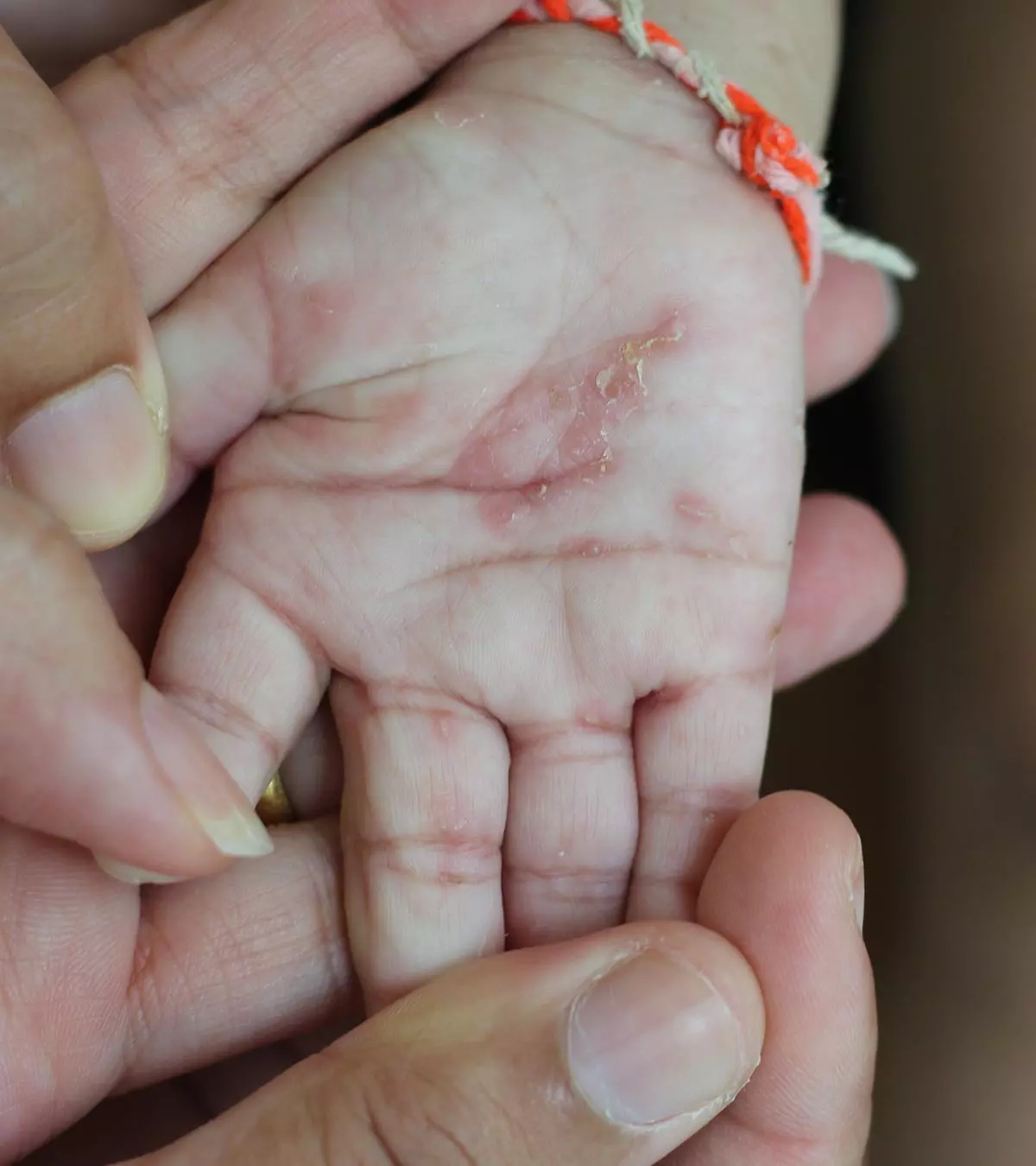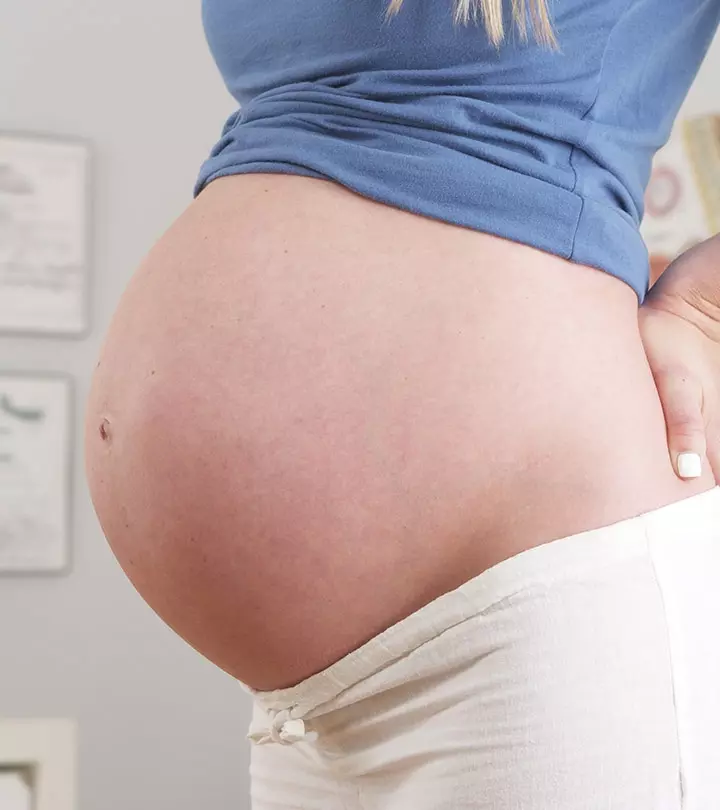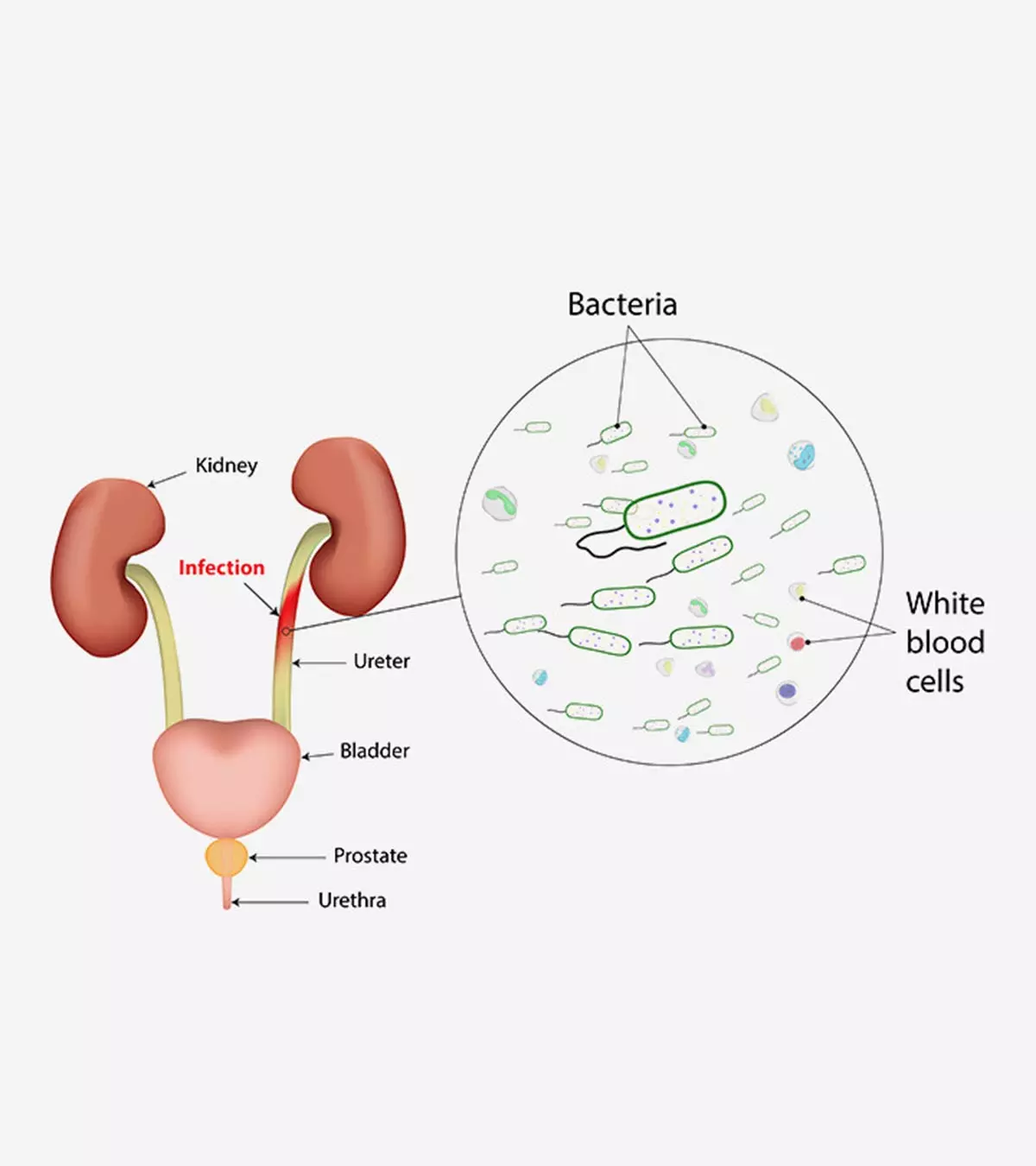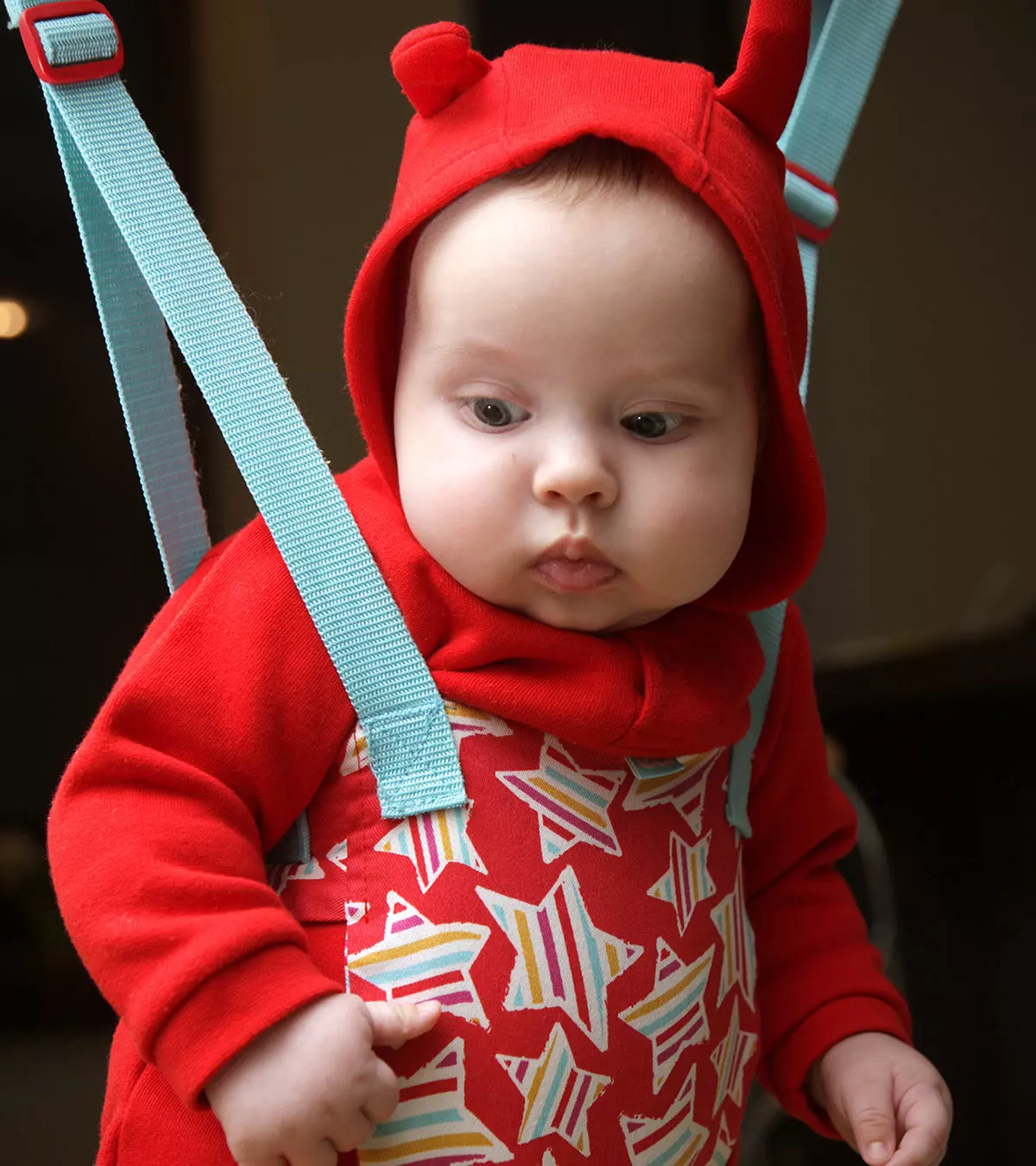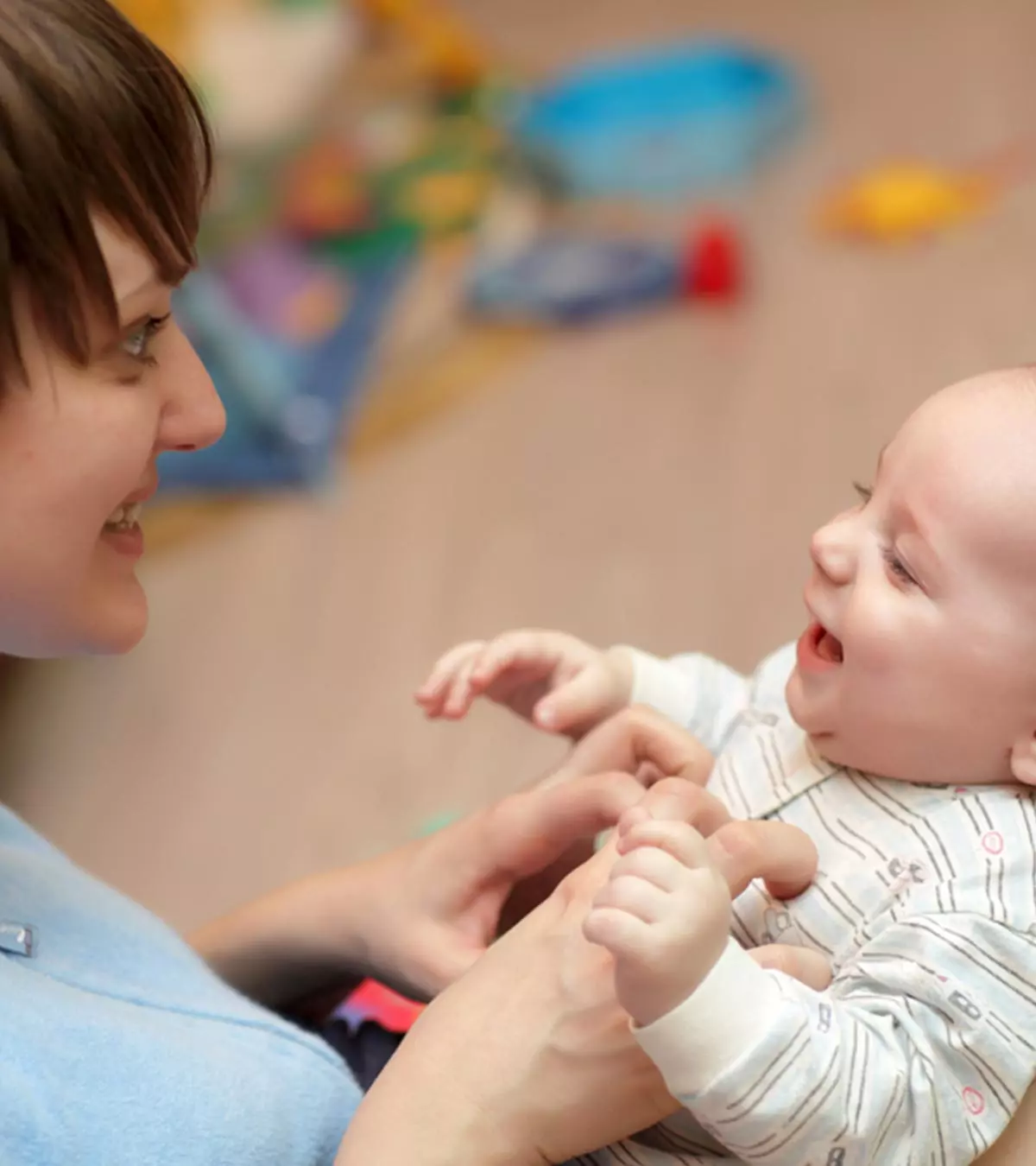
Image: Shutterstock
Many of us resort to tickling babies to make them laugh. While most babies break into giggles while being tickled, it is impossible to tell if the baby likes it or not. Just like adults, not all babies like being tickled. Moreover, due to their limited language skills, it may be difficult for babies to communicate if they enjoy or dislike being tickled.

So, should we ever tickle the babies? Read this post as we tell you if you can tickle your babies, when babies begin to understand tickling, and alternative ways to make a baby laugh.
Key Pointers
- It is usually safe to tickle a baby once they are six months old, although they may not be very sensitive to it.
- Do not tickle the baby if they squirm or display discomfort. Never tickle a baby while they are asleep or feeding.
- Some alternatives to bond with babies and make them laugh are peek-a-boo, blowing bubbles, singing, or rocking them in your arms.
When Can You Tickle A Baby?
There is no fixed age to begin tickling your baby. As a general rule, it is best to try tickling your baby after they are six months old. It is the age when babies usually develop the ability to make sounds to express happiness or discomfort (1). A six-month-old is likely to voice their displeasure of being tickled if they don’t like it. Therefore, look for signs that indicate your baby is enjoying being tickled, such as by smiling or laughing. However, if they pull away from the touch, frown, or start crying, it is best to stop tickling them.
When Do Babies Understand Tickling?

One of the most common questions among new parents is “When do babies get ticklish?” It is not precisely known whether babies understand tickling and at what age they begin to develop a sense of it. Research indicates that babies are quite sensitive to touch up to the age of six months and can accurately tell the spot being touched on their bodies (2). This sensitivity gradually fades away after the age of six months, and a touch, such as a tickle, may not cause a sensory overload.
Younger babies are sensitive to touch, but they only register it as an elemental touch and cannot associate it with a tickle. Once older than six months, babies may better perceive a touch as a tickle and associate it with fun or laughter.
 Experts say
Experts sayHow To Tell If The Baby Dislikes Being Tickled?
Sometimes prolonged ticking can irritate the baby. Also, touching the baby’s skin very lightly can make them ticklish and irritated. A baby older than six months who dislikes being tickled is likely to display the following expressions and signs of displeasure when being tickled.

- Grimace and teary-eyed
- Sounds of displeasure
- Pushes hand away
- Tries to roll away
- Older babies may crawl away when tickled
Some babies may find tickling painful. Also, forceful laughter induced by tickling may cause some babies to gasp for air. In such cases, you may notice the baby breathing heavily or gasping for air after being tickled.
When To Avoid Tickling The Baby?
It is best to avoid tickling a baby in the following scenarios.
- Sickness or disease
- During and after feeding
- Baby is drowsy or sleepy
- Sleep
- Baby’s attention is preoccupied with something else
You must preferably avoid tickling the baby if they have a medical condition or have a physical limitation that affects their ability to communicate.
Impact Of Tickling On The Brain
Tickling is a complex sensory reaction to touch. The following are some general effects of tickling on the brain of human beings (3) (4).
- Tickling is usually a touch with an element of surprise. Our brains can mostly predict the response to a sensation and can suppress it. However, when it comes to tickling, it is hard for the brain to predict the response, thus leading to the sensation of being tickled.
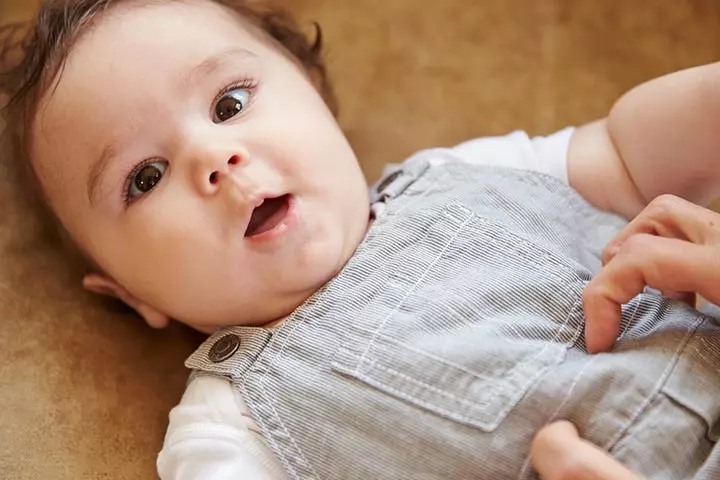
- When we attempt to tickle ourselves, there is no element of surprise. It is the reason why we usually cannot tickle ourselves.
- Tickling is believed to be a defense mechanism similar to pain or itch. It may serve the purpose of alerting the person. It is probably the reason why some individuals find tickling uncomfortable or painful.
- The skin over the belly, under the arms, and soles of the feet is usually the most sensitive to tickle in most persons. These parts of the body are also quite vulnerable. Therefore, from an evolutionary perspective, the nerves evolved to alert the person more quickly when being touched or tickled at these parts of the body.
- The response to a tickle depends on an individual’s sensitivity to touch. Some are more sensitive to touch and quickly respond to even the slightest tickle.
Myths About Tickling
The following are some of the common misconceptions about tickling babies.
- Tickling helps the baby talk: Tickling results in laughter rather than helping the baby learn words. Gentle tickling can be used for physical bonding but cannot stimulate speech.
- Tickling causes stuttering: There is no evidence of tickling being a cause of stuttering. Stuttering could occur in toddlers due to various reasons, including a family history of stuttering (5). If your toddler stutters, consult a pediatrician or pediatric speech therapist.
- Tickling works as an exercise for babies: Tickling causes one to laugh, which burns calories. However, the calories burned are not sufficient enough to warrant tickling to be a form of exercise for babies. Several indoor and outdoor physical activities make for better exercise than tickling.
- Tickling is always fun for babies: Tickling is usually perceived as fun. While babies might find it amusing being tickled and laugh, they may find it uncomfortable at times. Therefore, it is important to look for signs that may indicate if a baby likes being tickled or not.
 Quick fact
Quick factOther Ways To Make Babies Laugh

If you’re wondering how to make a baby laugh, consider these alternatives to tickling.
- Play peek-a-boo and other games, such as chasing the baby while they crawl, to make them smile. These games could make the baby coo, giggle, and squeal while also improving their developmental skills.
- Blowing bubbles and making funny sounds could make for a fun activity.
- Make funny faces since it often makes babies laugh.
- Make strange voices, such as slurping of liquids or sounds of animals, to elicit laughter.
- Hug, snuggle, and chuckle with the baby to make them feel loved and cared for.
- Kiss, nuzzle, and cuddle the baby while reading a story or singing a lullaby.
- Play pretend play with toys by acting out a funny story and engage in playful activities such as jiggle, wiggle, and bounce games.
Alternative Ways To Bond With The Baby
You could try the following methods for establishing a secure attachment with your baby (6).
- Singing to the baby in your own voice
- Massaging with baby oil
- Bathing the baby
- Performing exercises for babies
- Rocking and patting them
- Reading books
 Quick tip
Quick tipFrequently Asked Questions
1. Why don’t babies laugh when I tickle them?
Babies don’t laugh when tickled because they don’t necessarily enjoy or may dislike the sensation. Also, remember that a baby’s sensory awareness is developing, and they have an immature social connection. These factors may prevent the baby from laughing.
2. Where should I tickle a baby?
The stomach, neck, the area under the knees, and toes are some spots where people tickle babies. Remember that babies cannot communicate even if they dislike the sensation. So, it is essential to be gentle while tickling them.
3. Are babies ticklish in the womb?
In the womb, many tactile sensations occur for the fetus to feel. But these are isolated events inside the womb. When babies enter the real world, they receive more sensory information through objects and hands (9).
You may tickle babies to make them laugh; however, before you do so, make sure the baby enjoys the action. Although there is no fixed age to tickle babies, it is safe to do it only after they turn six months, as they would then be able to express their approval or displeasure. Even though tickling is harmless, every child would not appreciate it. Therefore, if the baby is teary-eyed, tries to roll away, is sleeping, or is sick, avoid tickling them. If your baby does not like getting tickled, you may choose other methods, such as playing or making funny faces, to bond with them and make them happy.
Infographic: Precautions To Take While Tickling A Baby
Hearing your baby’s giggles and laughter can be one of the most joyful experiences. But tickling babies is not as simple as tickling adults and children. Since they cannot express their emotions well at this stage, you must ensure that you are careful while tickling them so that they are not uncomfortable. Use this infographic to understand the things you need to be mindful of.
Some thing wrong with infographic shortcode. please verify shortcode syntax
Illustration: How Safe It Is To Tickle Babies? Things You Should Know
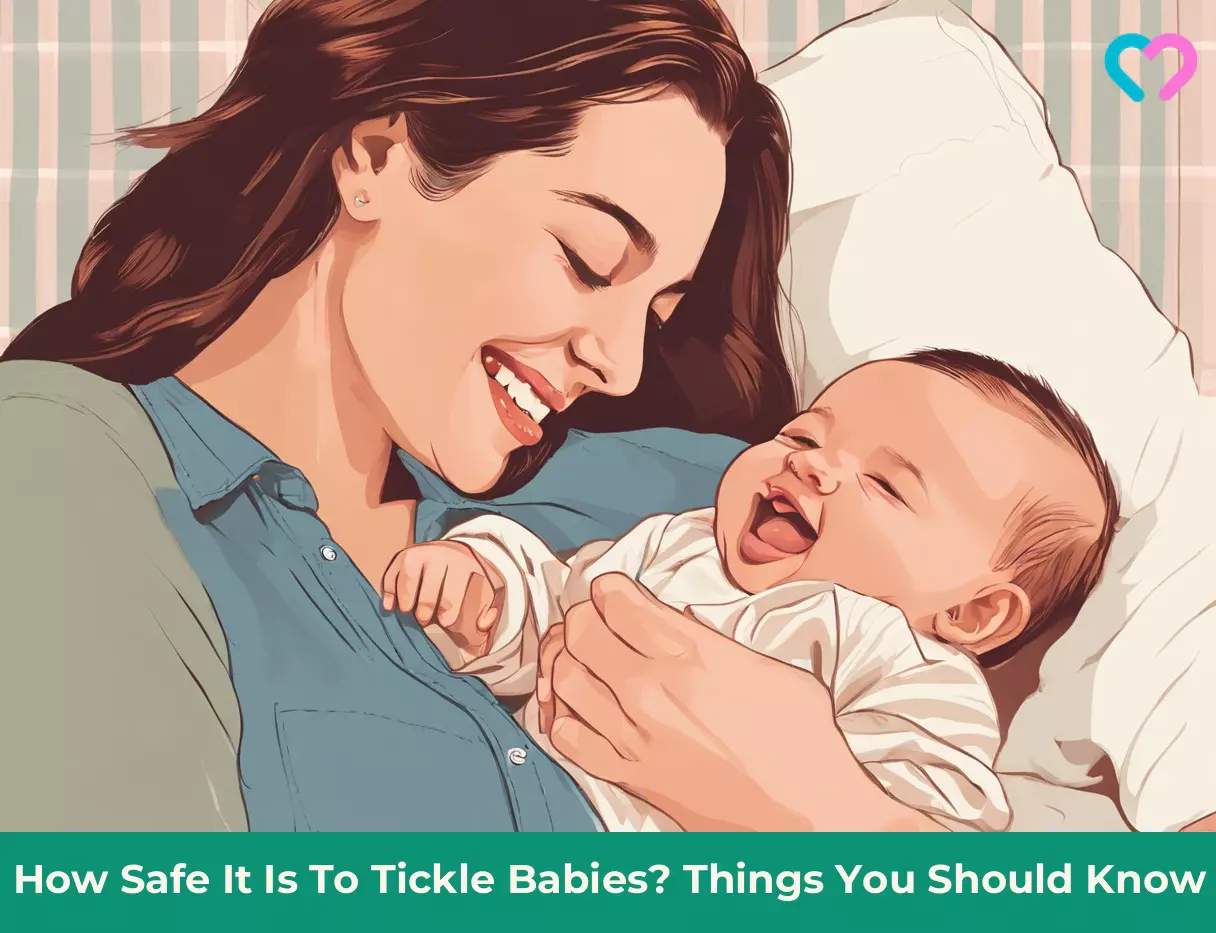
Image: Stable Diffusion/MomJunction Design Team
References
1. Important Milestones: Your Baby By Six Months; Centers for Disease Control and Prevention
2. What Really Happens When You Tickle Babies; Boston University
3. Michael Hinck, Interesting Facts About Tickling; Jamaica Hospital Medical Center
4. Why are you so ticklish?; Penn State University
5. Stuttering in Toddlers & Preschoolers: What’s Typical, What’s Not?; American Academy of Pediatrics
6. Building a Secure Attachment Bond with Your Baby; HelpGuideOrg International
7. What Happens In A Baby’s Brain When They’re Getting Tickled? Experts Explain; Memorial Care
8. What Really Happens When You Tickle Babies; The Nerve Blog; Boston University
9. Womb with a view: Sensory development in utero; The University of Texas Southwestern Medical Center
Community Experiences
Join the conversation and become a part of our nurturing community! Share your stories, experiences, and insights to connect with fellow parents.
Read full bio of Pranjul Tandon
Read full bio of Rohit Garoo
Read full bio of Dr. Ritika Shah
Read full bio of Ghazia Shah










